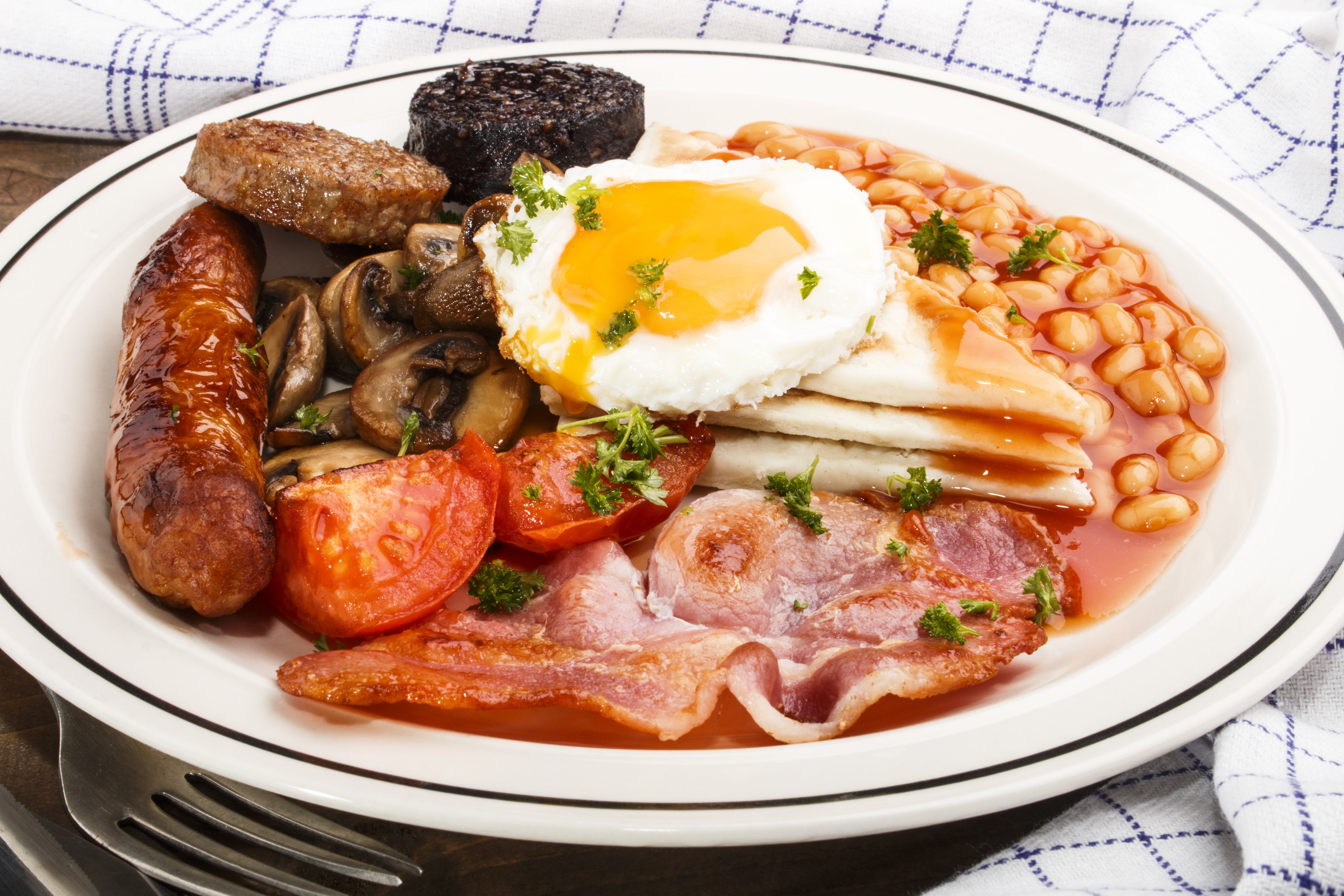How is the humble sausage at the mercy of Brexit trade talks?
The Ulster fry may yet survive – but only if it carries proper documentation, writes Sean O’Grady


Fans of an “Ulster fry” should be worried. The sausages that forms such an integral part of this cholesterol-rich start to the day in the province is mortally threatened by Brexit. Indeed a very wide range of products moving into Northern Ireland from Great Britain are jeopardised by the mess that is Brexit. Bacon, butter, indeed all dairy produce, chicken, lasagnes, lamb, seed potatoes, even a ham and cheese sandwich are in a state of phytosanitary suspension in Northern Ireland. Under a no-deal Brexit, the sausage crisis could spread across the UK.
For what is a sausage if not a powerful symbol of the power of international free trade? Or lack of it. At the moment, under the agreed EU-UK withdrawal agreement, Northern Ireland is supposed to become a member of the EU customs union and EU single market, and, simultaneously, of the UK customs union and UK internal market. This is hard to make work, even under the specially designed terms of the Northern Ireland Protocol.
The solution was supposed to be a new economic border between Great Britain and Northern Ireland, which now represents the boundary of the EU’s customs union and single market, just like the border between Poland and Ukraine, say. The EU has to be happy with the stuff coming into its zone – that it is safe to eat and responsibly farmed, for example. Fresh and chilled meats and meat products are thus subject to control. If the UK is not recognised in some way as a trusted third-country source of foodstuffs, then the meat is either banned or subject to requiring a certificate that it is OK for import into the EU. That’s because there will famously be no border between Northern Ireland and Ireland, so a sausage bought in Strabane (UK) can legitimately travel to Donegal (Ireland) with no risk to health or the integrity of the EU single market.
The Ulster fry survives – but only if it carries proper documentation, and that could be expensive. It mainly affects supermarket transports with big varied loads crossing the Irish Sea which would require hundreds of certificates running to thousands of pounds. A ham and cheese sandwich, for example, would require two certificates, one for meat, the other for dairy. That might be OK if the trailer on the articulated lorry just had the one product. But they don’t, of course. Then there would be the sausage rolls, Welsh lamb chops, Scottish beef, Melton Mowbray pork pies, Norfolk turkeys, ready meals, soups and all the other treats on board. All that without even thinking about adding and reclaiming import tariffs...
If the UK chose to retaliate, or had to apply similar rules under WTO rules that require equal global treatment in imports not covered by a free trade deal, then German bratwurst, Danish Lurpak and French brie might be harder to come by or more expensive. Food and drink producers will also find life complicated if not prohibitive, particularly in Ireland, ironically given all the attention it’s had. Ingredients in a bottle of delicious Baileys Irish Cream, for example, cross the Irish border five times before they’re ready for consumption. If the Baileys is exported to, say, Canada under the EU/Canada free trade deal, it will need to abide by “rules of origin”, ie how much of the value is EU/Irish and how much is non-EU/Northern Irish (unless the rules are waived). For some trade deals, rules of origin are strict to prevent cheating; others, usually older, don’t bother with them. An exported “Irish” sausage containing British meat, and vice versa, could cause crises at customs posts worldwide: a sausage with no entry is no use to anyone.
For now the fate of the sausage lies with the joint UK-EU committees trying to implement the Irish Protocol, and there seems to be a willingness to grant a period of grace for inter-Ireland sausage movements. But that is all governed by the wider EU-UK free trade deal, where the talks are currently going slowly.
Pork or beef, flavoured with herbs or plain, laced with apple or chorizo, the story of the sausage is the story of our world, in all its complexity. It just goes to show that you should never judge a sausage by its skin.
Join our commenting forum
Join thought-provoking conversations, follow other Independent readers and see their replies
Comments
Bookmark popover
Removed from bookmarks